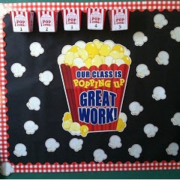Why Teachers Who Expect Every Student to Love Every Lesson Are Setting Themselves Up for Failure
Of course, teachers want their students to enjoy everything they do in the classroom. But according to a thoughtful post, “Why Realistic Classroom Expectations Are Important” that middle school teacher Brent Modak wrote for the Asset Education blog, expecting every student to love every lesson is counterproductive.
“When I was new to teaching,” Modak writes, “I thought for an activity to be successful it had to stimulate all students (give me a break; I was young!). I quickly realized that this was unrealistic. If your expectations and the expectations you set for students are `everyone is going to love this,’ you’re setting the class up for failure. So, be honest with your class. For me, this meant explicitly saying, `The following SEL [social and emotional learning – ed.] tool might not work for everyone and that is okay, but just give it a legitimate try.’
“I had a student who absolutely refused to engage in any SEL activities, but three years later I got an email from her when she was in college. She said how she now realized that self-care wasn’t selfish care. If I had judged whether SEL impacted this student right away, I would’ve had to accept that it failed. A long-term approach alters that judgement, as now the student realizes the importance of SEL and goes back to those activities as ways to care for herself.”
Setting Up Realistic Expectations for Student Experiences
Some of these tips come from Mr. Modak’s article, and others have been recommended to us by classroom teachers:
- Openly state that certain skills or approaches you are teaching might not work for some students, or that they might not like them. But do encourage everyone to try.
- Create an atmosphere where you encourage feedback – even negative. It’s an effective way to know what your students are learning and what they are not.
- Intervene when students need help mastering a concept or skill. When students fail to utilize a lesson, there is not much to be gained by ignoring that and letting them move on to the next.
- Consider grouping students into teams. When students in groups attack a lesson, they sometimes learn approaches from each other that they would not develop on their own.
- Encourage improvements. If something is not working for students, encourage them to creatively develop and try alternative approaches.
Flexible, Adaptive Teaching
We very much like Brent Modak’s thinking, both for the advice it provides on solving a classroom problem and, even more, for the fact that it encourages teachers to be flexible. Demanding that all students learn the same material in exactly the same way is a trait of rigid, overly demanding teaching. And we all know that doesn’t work.
Your Students Are Invited to Explore Their College & Career Options with Us . . .
Students who participate in the National Career & College Pathway Study will gain new insights about making educational decisions that align with their interests, passions, and aptitudes. Participants will receive information on college and career opportunities that match their interests.
Resources
Career and College Planning Lesson Plan
Request study materials for your classroom
Related Posts
Black Teachers Needed More Than Ever
Great Ways to Integrate Career Planning into Your Classroom
Is It Time to Create a Career Research Center in Your Classroom?











Leave a Reply
Want to join the discussion?Feel free to contribute!